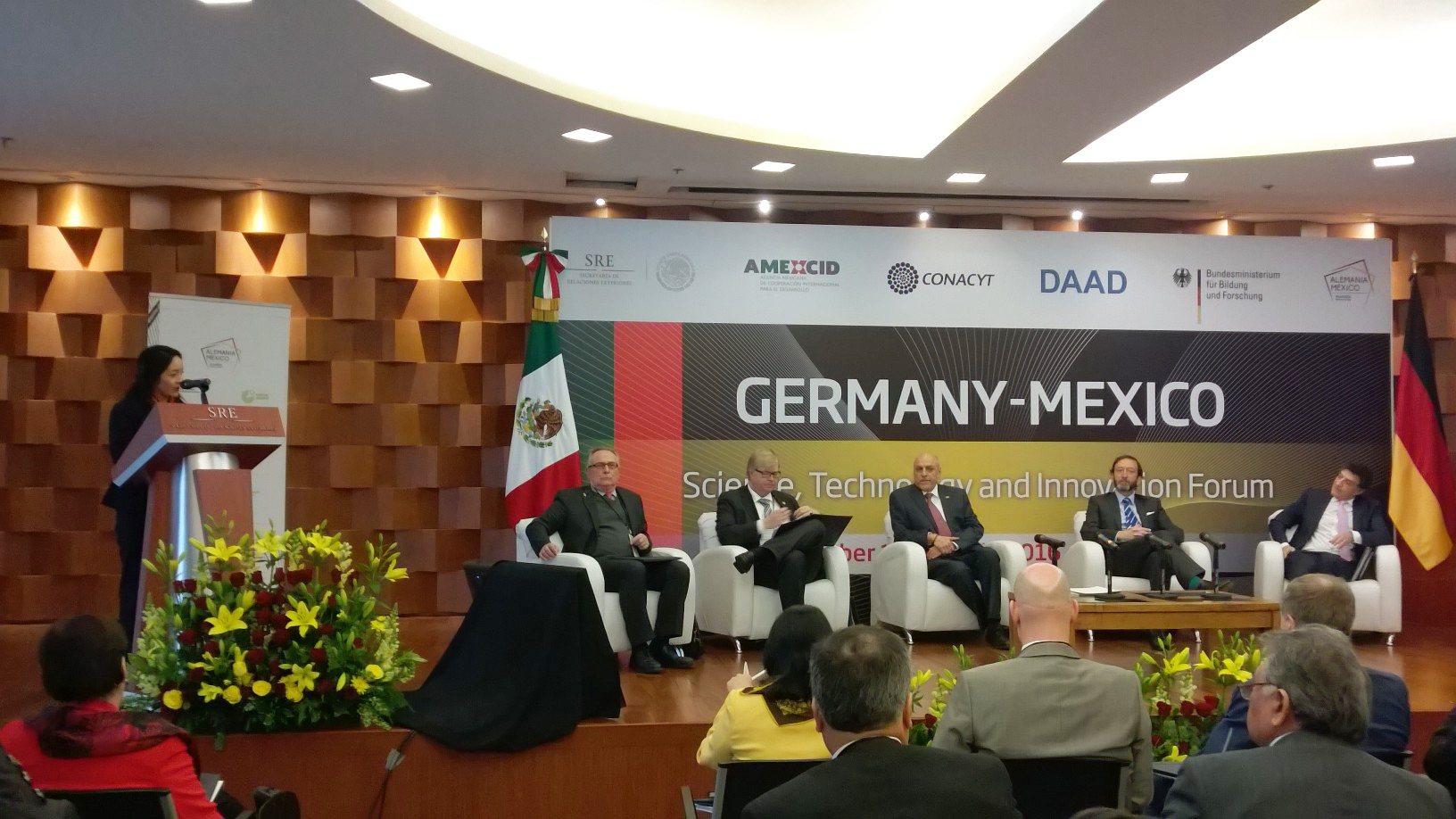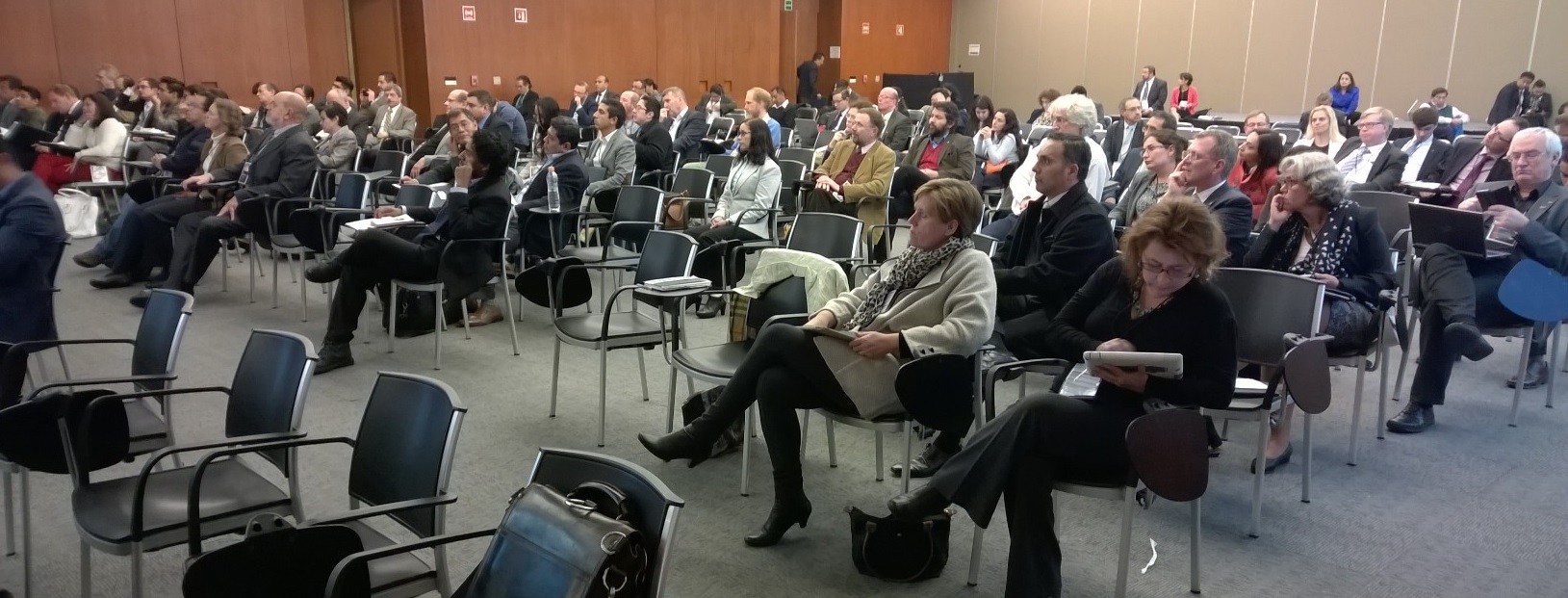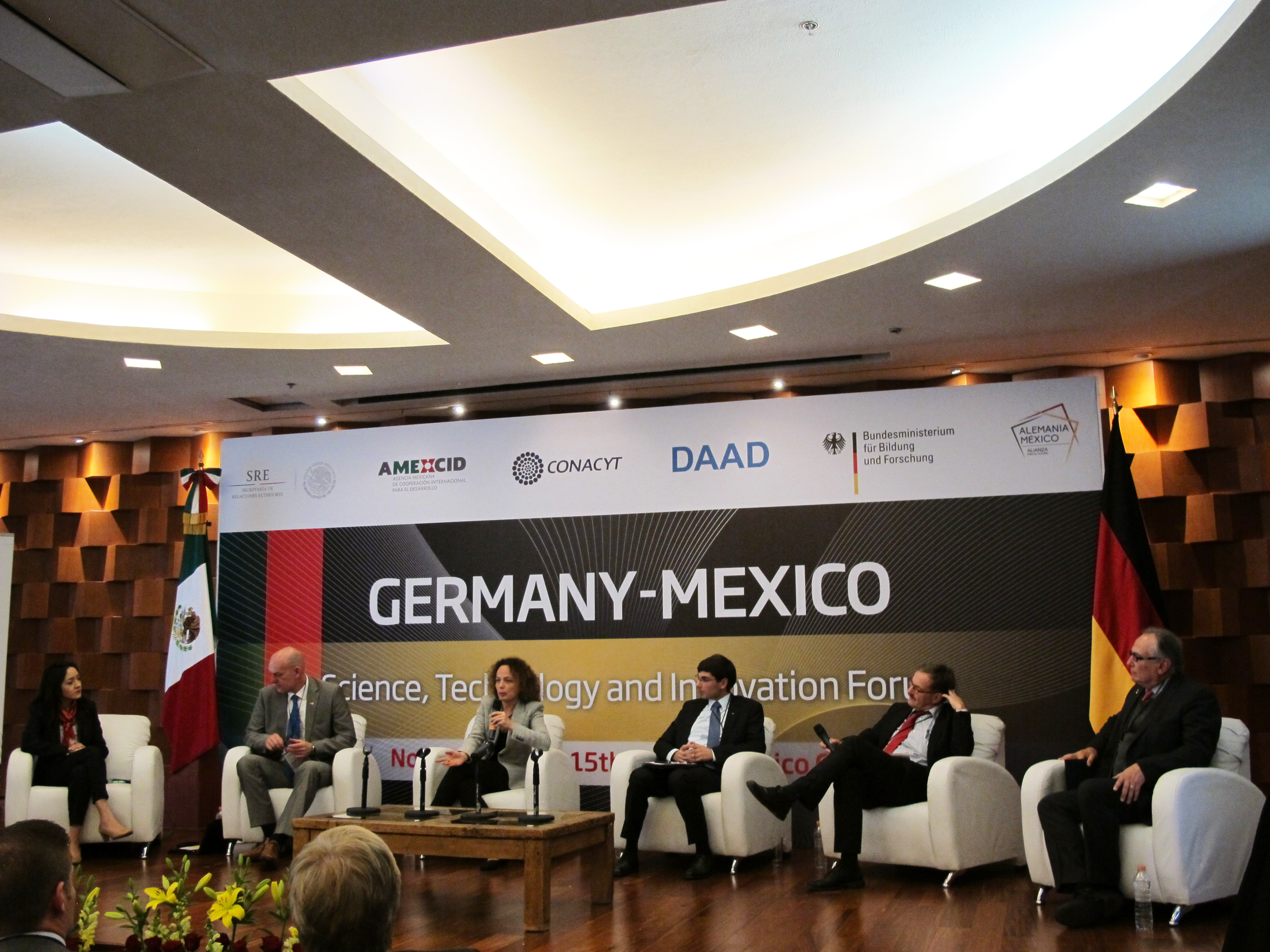Germany – Mexico: Science, Technology and Innovation Forum in Mexico City
(24.11.2016) To mark the Mexico-Germany Dual Year 2016-2017, a number of researchers, industry representatives and government officials gathered in Mexico City to discuss the current situation and the future of German-Mexican collaboration in science, technology and innovation. The event was opened by Enrique Cabrero Mendoza, Director General of the National Council of Science and Technology (CONACYT), and Frithjof Maennel, Head of the Department of International Cooperation at the German Federal Ministry of Education and Research (BMBF). They both highlighted the importance of collaboration between the two countries for science and industry. German ambassador Viktor Elbling mentioned the many discernible joint activities in scientific and technological research in his welcome speech. He also emphasised that research collaboration occurs in all areas, from higher education right through to institutional research.
Opening the event: Maria Fernanda López Olivo, Arturo Borja, Frithjof Maennel, Enrique Cabrero, Viktor Elbling, Elías Micha
Around 230 attendees held discussions in eight different sessions on topics such as energy and climate sustainability, health research and biotechnology, aerospace research, materials science, Industry 4.0 and urban mobility. The opening sessions of the two-day workshop also addressed the issues of public funding for science and technology, opportunities for joint collaborative funding, identifying joint focuses and developments in dual university programmes and degrees. Representatives of the German Academic Exchange Service, the German Research Foundation (DFG), the Alexander von Humboldt Foundation, the Fraunhofer Society and Mexico’s CONACYT and AMEXCID (the Mexican Agency for International Development Cooperation) presented their experiences of the German-Mexican collaboration and their bilateral programmes and gave talks on topics of current relevance. These presentations contrasted the advantages and drawbacks of federal-pluralistic research funding, as is the case in Germany, with more centrally organised funding for science and technology in Mexico. The panellists agreed on the assessment that university exchange and research collaboration between the two countries is comparatively very high – this requires special funding on both sides. One example of outstanding collaboration is the International Research Training Group jointly funded by the DFG and CONACYT entitled “Entre Espacios – Zwischen Räumen” (Between Spaces) which was presented by its spokesperson Stefan Rinke from the Free University of Berlin and Jean François Prud’Homme from the Colegio de México in a plenary address.
In addition to the many positive experiences and results of the collaboration between Germany and Mexico, a number of challenges for the future were also identified. For instance, there was mention of the need to establish improved links between academic research and the private sector and to find priority areas for the transfer of technology and knowledge in society. The issue of how knowledge and research data can be made accessible and managed cropped up several times and played a key role in the discussions.


